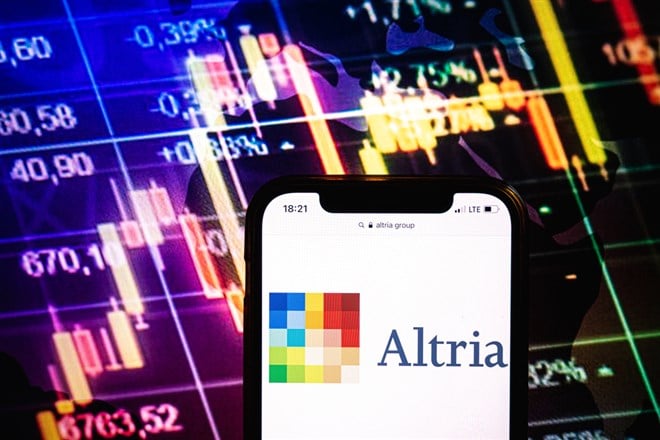
The macro backdrop for Altria Group (NYSE: MO) is in the process of changing for the worst. Far more assertive measures are being taken by certain state and federal policymakers in the US against the consumption of nicotine products.
Some of these measures include the Food and Drug Administration's power to regulate nicotine products that contain synthetic nicotine, which was introduced early last year. The move is expected to reduce the number of vaping products available, focusing on taking them out of the hands of teenagers and young adults.
Driving the nail further is that a Federal law was introduced last October that prohibits most vape products from being sent through the United States Postal Service. Companies such as United Parcel Service (NYSE: UPS) and FedEx (NYSE: FDX) have also banned the freight of vaping consumables and devices, thus severely disrupting e-commerce supply chains for a large part of the nicotine industry.
Then there's the proposed move by the FDA to ban the manufacture and distribution of menthol cigarettes and cigars, announced in April last year.
That's three major blows to nicotine producers in twelve months in the US alone. What this all means for tobacco companies like Altria is that the tolerance of the general public and lawmakers is rapidly moving against them, and there's a good reason to suspect this momentum shift will not only continue but accelerate.
ESG sounds like the death knell for tobacco companies
One of the most impactful trends in the administration of corporations and society in the last couple of decades is adopting environmental, social, and governance (ESG) policies. Once considered a meme or a box-ticking exercise, today, they're at the forefront of some of the most transformative supercycles most investors witnessed in their lifetimes.
ESG policies drive the adoption of electric vehicles, the discontinuation of thermal coal burning, more equitable pay and corporate structures, a deeper connection between companies, employees, their communities, and so on.
McKinsey recently described ESG as giving companies a revocable "social license," that allows them to trade with the general public. Companies maintain their license by building a balance of pro-social equity.
Companies like Altria sell products that couldn't be more antithetical to the new social awareness ushered in by ESG. Tobacco actively harms human health, and the industry's alleged predatory marketing behavior toward young adults to get them hooked makes it a ripe target for getting canceled.
Climate change
Another vulnerable angle for the tobacco industry to watch out for is their contribution to carbon emissions. Pursuing this angle may be a convenient way for lawmakers to harm the industry without the need for an outright ban on the sale of tobacco products.
Last year again, the CDC published a six-phase dossier on the negative impacts tobacco production has on the environment, seen through the lens of climate urgent climate action needing to be taken.
The rising urgency to address the tobacco industry's contribution to emissions was also raised by the WHO in the same year, naming cigarettes as "the most littered item on the planet" and the industry releasing 84 million tonnes of CO2 per year.
European countries like France have started forcing tobacco companies to offset their pollution and emissions through a Polluter Pays Principle. This principle is also observed in cities in the US, such as San Fransisco, thereby mandating ESG responsibilities on tobacco corporations whether they like it or not.
Some more progressive countries, such as New Zealand, have taken even more extreme steps. The small island nation banned the sale of tobacco products to anyone born on or after Jan 1, 2009, last December.
The tide is rapidly turning
Although it's very unlikely a tobacco ban will ever be implemented in the US, companies that distribute it will face the continued ire of governments and the general public, leading to diminished earnings and a skeptical response from retail investors about their long-term longevities.
Meanwhile, public pressure is likely to mount for institutional investors to stop investing in the tobacco industry due to working against the pro-social ideas that continue to be adopted by society at large, courtesy of ESG.













